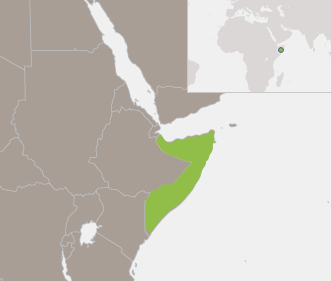New post from Security Governance Group Project Manager, Matthew Redding discusses the ‘New Deal for Somalia’ conference, non-state security providers and civil society organizations.
On September 16th, the ‘New Deal for Somalia’ conference will be held in Brussels, co-hosted by Somalia’s Federal Government and the European Union. The event is meant to build on the momentum that has been generated towards developing a functioning Somali state and restoring a semblance of peace and stability. The centre-piece of the conference will be the Compact which provides a new “political, security and developmental architecture” between the newly established Federal Government, the Somali people and the international donor community.
The Compact is guided by the principles of the New Deal for Engagement in Fragile States, established in Busan, South Korea in 2011. The New Deal provides a roadmap that was presented and agreed to by the International Dialogue on Peacebuilding and Statebuilding and the g7+ group of fragile states, which includes Somalia, along with other international partners. The New Deal lays out five peacebuilding and statebuilding goals (PSGs) approached through important lessons learned about local ownership, accountability and capacity-building in peacebuilding and statebuilding activities.
In preparation for the conference and the overall implementation of the New Deal, Somalia has been preparing a fragility assessment to better understand the drivers of conflict and the necessary steps for moving forward. They have also undertaken inclusive consultations with communities and the regions to identify government priorities, while hosting a number of working groups on implementing the five PSGs. In particular, the conference will focus on three key themes, partly derived from the consultations. These are: Inclusive Politics; Rule of Law and Security; and Socio-Economic Development.
For the conference to be successful and make a real impact, participants must not only consider relations between the Somali state and international donors, but also incorporate the concerns and real contributions made by non-state actors in Somalia. This will be particularly important in the area of rule of law and security, as non-state actors have been especially active in this respect.
Somalia is a unique case of state collapse. Although there has been no functioning government for some time, a form of localized, sub-national governance has taken shape. The most obvious case of this is in the autonomous region of Somaliland, where an indigenous form of statebuilding resulted in the formation of a de facto state.
It is not uncommon for traditional and community-level authority figures to fill vacuums in law and order in such contexts. Clans, elders, militias and Islamic clerics have all played a role in providing basic services and a modicum of security to Somalis. Indeed, when the state is too weak (or non-existent) to deliver basic services, non-state actors often rise to the occasion. In the case of South-Central Somalia, local clans, militias and the former Islamic Courts Union (ICU) became providers of justice and security. Although the ICU was defeated by an Ethiopian contingent intent on eliminating radical elements of the courts, clans and militias still remain a powerful source of security.
An example of such a militia is the Ras Kamboni Movement that operates in the newly established Jubaland. Ras Kamboni has been invaluable in assisting the Kenyan Defence Forces with ousting Al-Shabaab from the Juba region, particularly in Kismayo. Given the lack of an effective military partner in the Somali National Army, Kenya has been very willing to allow Ras Kamboni to participate in operations. Ras Kamboni and its leader, Ahmed Mohamed Islam Madobe – who was recently elected President of Jubaland – are revered by locals who trust them with their security, perhaps more than the SNA or Somali Police Force.
The lack of confidence in state security institutions is a problem that the New Deal conference should address by encouraging reconciliation between the central government, regional and district authorities, as well as different clans. Reconciliation will help to incorporate the regions under a federal system as set out in the provisional constitution and allow for easier integration of former militias into the national army and police force. To date, integration has been hindered by the continued allegiance to clan, rather than state authorities.
Other important non-state actors that can help facilitate this process are prominent civil society organizations like the Puntland Non-State Actors Association and the Somalia Southern and Central Non-State Actors platform. Their role in reaching out to marginalized groups will be essential in fostering the reconciliation necessary to build trust and cooperation between all security providers (both state and non-state), monitor and report human rights abuses and to help screen potential recruits.
Large international conferences are not a new feature in the long-road to re-establish Somalia as a viable state. However, the New Deal conference holds promise in that it outlines a new relationship between donors and recipients that is nationally-led by fragile states themselves. In Somalia, it must be ensured that national ownership also means that key non-state actors like militias, clans and civil society have a say in shaping Somalia’s future.





 Visit the Centre for
Visit the Centre for